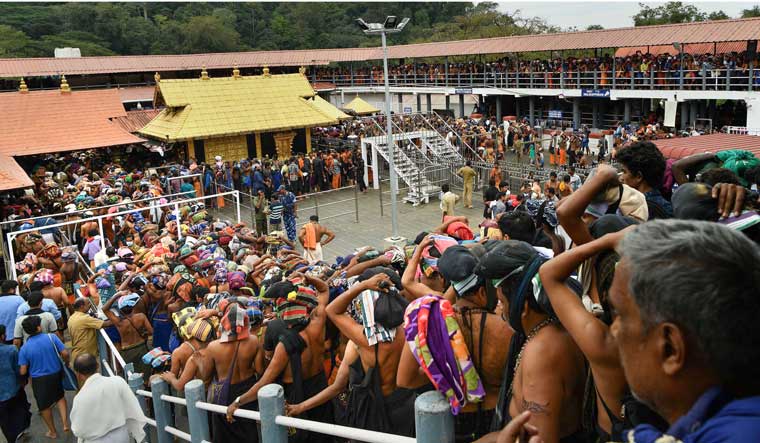The All India Sabarimala Action Council (AISAC) will continue with its protests democratically to ensure that the sanctity, customs and traditions of the Ayyappa temple is protected with no menstruating woman (in the 10-50 age group) visiting there, its general secretary S J R Kumar said on Wednesday.
"We will continue with our fight legally in the Supreme Court" to ensure that the meditation of celibate god Ayyappa is not disturbed by women of such age group, Kumar told PTI over phone from Kochi.
His reaction comes even as the Supreme Court agreed on Wednesday to hear the plea of a Kerala woman, alleging that she was prevented from visiting the temple despite the apex court's verdict allowing entry of women of all ages into the shrine, next week.
Kumar, a former president of the Vishva Hindu Parishad's (VHP) Kerala unit, said, "It is not a small issue (entry of all women). It involves the beliefs, customs and sentiments of crores of Ayyappa devotees the world over. We cannot take any chance. We will protest peacefully, exercising our democratic rights, and fight the case legally in court. We will ensure that the sanctity, tradition and holiness of the temple is maintained at all cost," he said.
Though there were around 3,000 Ayyappa temples in the country, "there is only one Sabarimala for Ayyappa", Kumar said, referring to the uniqueness of the traditions practised at the famous hill shrine.
An apex court bench comprising Chief Justice S A Bobde and justices B R Gavai and Surya Kant took note of the submission of the petitioner's counsel that she was not allowed to visit the temple and agreed to hear the case next week.
A five-judge Constitution bench, by a majority 4:1 verdict delivered on September 28, 2018, had allowed women of all ages to visit the temple, saying discrimination on physiological grounds was violative of the fundamental rights as enshrined in the Constitution such as the right to equality.
On November 14, the top court said a seven-judge bench will re-examine various religious issues, including the entry of women into the Sabarimala temple.



